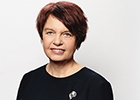Draft Law on the Organisation of Research and Development and Innovation (554 SE) - First Reading
Session: 15th Riigikogu, 5th session, plenary session
Date: 2025-02-26 17:04
Participating Politicians:
Total Speeches: 87
Membership: 15
Agenda Duration: 1h 23m
AI Summaries: 87/87 Speeches (100.0%)
Analysis: Structured Analysis
Politicians Speaking Time
Politicians
Analysis
Summary
The Riigikogu discussed the first reading of draft law 554, initiated by the Government of the Republic, regarding the organization of research and development and innovation activities. Minister of Education and Science Kristina Kallas introduced the draft, which creates a comprehensive framework for the R&D&I field, defining the roles of parties, principles of funding, and the basis for assessing research ethics and quality. Among the most significant changes, the Minister highlighted the integration of strategic management of R&D&I, the expansion of the Research and Development Council's focus to innovation (new name: TAIPN), and the replacement of two policy commissions with a single steering commission. In funding, institutional operational support will become more stable (70% base portion, 30% results-based). For the first time, the organization of research ethics will be regulated, establishing a central research ethics committee and a commission for handling cases of misconduct alongside the Estonian Research Agency. University assessment of research quality will also be simplified, linking it to institutional accreditation.
In the subsequent discussion, members of the Riigikogu raised questions regarding the situation of national sciences, the stability of research funding, the transfer of private sector funding to the Ministry of Economic Affairs and Communications, and the analysis of the link between science and higher education funding. Speakers from the opposition expressed concern about the risk of political interference and ideological direction in science, to which the Minister responded, emphasizing the protection of academic freedom and the autonomy of researchers, and explaining that the councils are merely advisory bodies. The representative of the Culture Committee, Margit Sutrop, provided a detailed overview of the draft’s handling in the committee, highlighting proposals to fix R&D&I funding at 1% of GDP and to resolve inter-ministerial conflicts regarding the regulation of quality criteria for research projects. During the negotiations, the Social Democratic Party faction stressed the need to ensure sufficient security for researchers and flexibility for research institutions, avoiding the transformation of research funding into a tool for political influence. The consideration of the agenda item concluded with the completion of the first reading. The next agenda item remained unaddressed due to the absence of the presenter.
Decisions Made 2
Bill 554 has concluded its first reading.
The deadline for submitting amendments was set for March 12, 2024, at 5:15 PM.
Aseesimees Arvo Aller
AI Summary
Vice-Chairman Arvo Aller informed that today's third item on the agenda is the first reading of the Government-initiated draft law No. 554 on the organization of science and development activities and innovation, and the presenter is asked to be Kristina Kallas, Minister of Education and Science.
Haridus- ja teadusminister Kristina Kallas
AI Summary
The briefing introduces a draft bill that creates a comprehensive framework for the governance of science, development activities, and innovation, unites management into a single Science, Development and Innovation Steering Commission, places emphasis on academic freedom and adherence to research ethics, conducts evaluations uniformly, and implements a stable and results-based funding system, expands the roles of the stakeholders, and assigns modern tasks to the science agency and to other institutions, and it will come into force on September 1.
Aseesimees Arvo Aller
AI Summary
The vice-chairman Arvo Aller asks Jaak Valge to answer the questions.

Jaak Valge
Profiling Fraktsiooni mittekuuluvad Riigikogu liikmedAI Summary
Jaak Valge notes that the Estonian system of scientific activity does not meet the needs, and private investments are very small, which together with bureaucracy, funding instability, and the low attractiveness of a scientific career leaves the state of ethnological sciences dire, and asks how the draft intends to address these problems and why this field receives so little attention.
Haridus- ja teadusminister Kristina Kallas
AI Summary
Kristina Kallas said that the state of ethnological sciences in Estonia has significantly improved in recent years, because 5% of all research and development funding is allocated to ethnological sciences, and there are national professorships at the University of Tartu and strong funding opportunities through research agencies, and she does not claim that this situation would be bad.
Aseesimees Arvo Aller
AI Summary
The vice-chairman Arvo Aller asks Tõnis Luke to take the floor.

Tõnis Lukas
Profiling Isamaa fraktsioonAI Summary
They ask whether the Ministry of Education and Science covers the core funding of private-law research and development institutions from its own budget in accordance with the agreement concluded with MKM, and whether this does not burden the ministry.
Aseesimees Arvo Aller
AI Summary
The speaker calls on the audience to act, saying that now is their time.

Tõnis Lukas
Profiling Isamaa fraktsioonAI Summary
The speech investigates whether sectoral funding actually increases.
Haridus- ja teadusminister Kristina Kallas
AI Summary
Education and Science Minister Kristina Kallas said that the operating support for private-law research and development institutions that operate as companies will move to the remit of the Ministry of Economic Affairs and Communications, together with the existing base funding from the Ministry of Education. However, when calculating future support, the share of entrepreneurship contracts in the private sector will not be taken into account, which will likely reduce the base funding amount allocated to the private sector.
Aseesimees Arvo Aller
AI Summary
The deputy chairman Arvo Aller asks Liina Kersnat to come and speak.

Liina Kersna
Profiling Eesti Reformierakonna fraktsioonAI Summary
Liina Kersna notes that companies invest in research and development at a record-high level, more than the state does, and asks the question of how TAIKS will improve the interconnection between higher education and science.
Haridus- ja teadusminister Kristina Kallas
AI Summary
Education and Science Minister Kristina Kallas says that Estonia is analyzing the Finnish model, in which funding for higher education and research and development activities is allocated to a single budget pot, and the university itself decides the distribution of shares, which could increase financial autonomy, but universities have different attitudes toward it.
Aseesimees Arvo Aller
AI Summary
This is a short prayer: "Anti Poolamets, please!"

Anti Poolamets
Profiling Eesti Konservatiivse Rahvaerakonna fraktsioonAI Summary
Anti Poolamets criticizes that higher education is steered by money, and that the preparatory innovation policy council could ideologize science, emphasizes the impact of funding for the green transition, and asks what would happen if science began dealing with 150 gender topics.
Haridus- ja teadusminister Kristina Kallas
AI Summary
The Science and Development Council is an advisory body, and the expansion of its mandate includes innovation. The existing commissions on science and development activities and on innovation policy are merged into a single executive committee, and one unified strategy for science and development activities and innovation is established, as a result of which the number of commissions decreases.
Aseesimees Arvo Aller
AI Summary
At the start of the speech, Margit Sutrop is invited onto the stage.

Margit Sutrop
Profiling Eesti Reformierakonna fraktsioonAI Summary
Margit Sutrop welcomes the adoption of the law and asks whether it ensures the ethical approval of all research conducted in Estonia, notes that at present studies may require the Data Protection Inspectorate's approval, calls for closer cooperation with the Estonian Research Agency, and discusses whether the law should include a funding amount of 3000 euros.
Aseesimees Arvo Aller
AI Summary
Now it's your time.

Margit Sutrop
Profiling Eesti Reformierakonna fraktsioonAI Summary
Margit Sutrop emphasizes that it must be eaten up.
Haridus- ja teadusminister Kristina Kallas
AI Summary
Kristina Kallas said that a science ethics committee will be created under the Science Agency and will take over the duties of the ethics committees of other institutions; it will not replace the Data Protection Inspectorate, and for the use of population data a permit from the Inspectorate is required, while it will not be made compulsory for all studies—the rules and funders determine when ethics approval is required.
Aseesimees Arvo Aller
AI Summary
Vice-chairman Arvo Aller turns to Urve Tiiduse and asks her to speak.

Urve Tiidus
Profiling Eesti Reformierakonna fraktsioonAI Summary
Urve Tiidus asked how the Act on the Organization of Research and Development and Innovation affects international cooperation and whether it changes funding or organizational aspects.
Haridus- ja teadusminister Kristina Kallas
AI Summary
They said that Estonia uses international definitions of the scientist and of the stakeholders in the system of research and development, regulates their funding and ethical principles, but does not regulate international cooperation — that is the scientists' own autonomous decision.

Liina Kersna
Profiling Eesti Reformierakonna fraktsioonAI Summary
Liina Kersna emphasizes the need to better align funding for science and higher education and the importance of universities' financial autonomy, and asks whether in TAIKS it is planned to consolidate the evaluations into one and conduct a single evaluation.
Aseesimees Arvo Aller
AI Summary
The vice-chairman Arvo Aller invites Liina Kersna to take the floor.
Haridus- ja teadusminister Kristina Kallas
AI Summary
Kristina Kallas said that the evaluation of science at universities and of evaluated applied higher education colleges will in the future be carried out within the framework of institutional accreditation, which will reduce bureaucracy, because one process covers both accreditation and the assessment of research and development activities, where accreditation ends after one year and the science evaluation begins the next year, and this is logical, since the quality of research and development activities is an important input in assessing the quality of higher education institutions, but this does not apply to research and development institutions that do not have an obligation to provide higher education.
Aseesimees Arvo Aller
AI Summary
The vice-chairman Arvo Aller invited Heljo Pikhofi to speak.

Heljo Pikhof
Profiling Sotsiaaldemokraatliku Erakonna fraktsioonAI Summary
The feedback received by the Riigikogu Culture Committee notes that the Estonian Academy of Sciences warns against overregulation of the assessment of scientific ethics, which could make the process bureaucratic and slow, and does not support turning it into a paid process, and the Internal Security Academy notes the lack of clarity in the assessment criteria, particularly with regard to indicators of the next generation.
Haridus- ja teadusminister Kristina Kallas
AI Summary
The right to receive funding concerns a situation in which the science ethics committee is approached regarding tasks that are not explicitly provided for in its statute; the commission may, indeed, provide other assessments, but in that case one cannot assume that they originate from funding for research and development activities.
Aseesimees Arvo Aller
AI Summary
Vice-Chairman Arvo Aller said that the number of questions is small, and he may ask again.
Haridus- ja teadusminister Kristina Kallas
AI Summary
Education and Science Minister Kristina Kallas notes that evaluation questions are not clear with regard to the next generation of scientists, and they belong instead to a separate document, not to TAIKS, where those assessment questions have not been explained.

Irja Lutsar
Profiling Eesti 200 fraktsioonAI Summary
Irja Lutsar stresses that the scientist's profession is unstable and largely depends on funding, and asks whether TAIKS gives a bench scientist working in Estonia a greater sense of security, or whether it instead compels them to look for better opportunities around the world.
Aseesimees Arvo Aller
AI Summary
This is simply a request to invite Irja Lutsar to speak.
Haridus- ja teadusminister Kristina Kallas
AI Summary
Kristina Kallas said that, although the existing 60/40 funding system has brought Estonian science to the top level, in the next development phase the division should be reconsidered, base funding increased to 70% and 30% made variable, the salary security of young researchers guaranteed, and it should be resolved that 20% of the growth funding is allocated to other ministries and does not reach the science system, therefore the 40:40 agreement needs to be reviewed.
Aseesimees Arvo Aller
AI Summary
The vice-chairman Arvo Aller invites Evelin Poolametsa to perform.

Evelin Poolamets
Profiling Fraktsiooni mittekuuluvad Riigikogu liikmedAI Summary
Evelin Poolamets asks how the law that creates a commission for handling cases of misconduct in research ethics and may impose paid services up to 3,000 euros eliminates a conflict of interest and does not make the resolution of ethical questions equally accessible to scientists.
Haridus- ja teadusminister Kristina Kallas
AI Summary
They explain that the services are charged only if they are not the Research Ethics Committee's main task, and although conflicts outside this remit can be resolved for a fee, a large portion of the core tasks is carried out free of charge for the scientists.
Aseesimees Arvo Aller
AI Summary
Margit Sutrop was mentioned in the speech.

Margit Sutrop
Profiling Eesti Reformierakonna fraktsioonAI Summary
Margit Sutrop discusses preserving the autonomy of the Estonian Research Agency's Applied Unit in evaluating funding applications and in determining the allocation of grants, and emphasizes the need to avoid political interference and to ensure that decisions are made by scientists as experts, not under the minister's purview.
Haridus- ja teadusminister Kristina Kallas
AI Summary
Kristina Kallas emphasizes that no proposed solution will render the panels completely independent, the distribution of state funds must take place by law or by a general act, and in the future the funding terms will be regulated by a ministerial decree, but the distribution is still the responsibility of the Estonian Research Council, and ministerial interference in the panels' decisions must be completely excluded.
Aseesimees Arvo Aller
AI Summary
This is a short prayer in which one prays to Kert Kingo.
Kert Kingo
AI Summary
Kert Kingo criticizes the government for centralizing governance by replacing two commissions with one, recalls the COVID-era pattern where only scientists whose views aligned with politics were accepted, and finally asks who decides on funding when providing advice is the only task.
Haridus- ja teadusminister Kristina Kallas
AI Summary
The amount allocated in the state budget for science and development activities is divided into 50% for basic funding and 50% for research grants; this distribution is decided by the Ministry of Education and Science based on the advice of the Science and Development Council, whose role is advisory, and then the money is directed to the science agency, where, through panels, competitions for research grants are organized by international evaluators, but the minister does not decide the recipients of research grants and the decisions are made autonomously by the scientists.
Aseesimees Arvo Aller
AI Summary
This is simply a request to invite Evelin Poolamets to perform.

Evelin Poolamets
Profiling Fraktsiooni mittekuuluvad Riigikogu liikmedAI Summary
Evelin Poolamets asks whether the draft provision that a person who is at least 15 years old has enough maturity to independently decide on participation in scientific research imposes restrictions, whether it covers drug or social research, and how it has come to be that a 15-year-old has become sufficiently mature.
Haridus- ja teadusminister Kristina Kallas
AI Summary
In drug studies, the consent of the minor's parent is mandatory, but for surveys a 15-year-old may decide for themselves, except for studies that involve physical intervention.
Aseesimees Arvo Aller
AI Summary
The deputy chairman Arvo Aller asks Kert Kingo to come forward.
Kert Kingo
AI Summary
Kert Kingo criticizes the selective handling of scientific advice and messages during the COVID-19 crisis and asks how the draft excludes the transmission of only messages and advice that are suitable for the government.
Haridus- ja teadusminister Kristina Kallas
AI Summary
Kristina Kallas explains that the Science Council and the Science and Development Council are two different and permanent councils; the COVID-19 advisory did not belong to the work of the Science and Development Council, and every prime minister can decide who sits on them.
Aseesimees Arvo Aller
AI Summary
Vice-chairman Arvo Aller invites Helle-Moonika Helme onto the stage.

Helle-Moonika Helme
Profiling Eesti Konservatiivse Rahvaerakonna fraktsioonAI Summary
According to Helle-Moonika Helme, Sutrop turned the topic into a political focal point and hinted that the current government wants to take science funding and oversight into its own hands, which would be dangerous if power changes hands.
Aseesimees Arvo Aller
AI Summary
This is a short, polite note that says "Your question" and "Thank you."
Haridus- ja teadusminister Kristina Kallas
AI Summary
Kristina Kallas emphasized that science must be independent and politicians must not determine what scientists study or how funding is distributed, because such interference produces bad and unreliable science.
Aseesimees Arvo Aller
AI Summary
The vice-chairman Arvo Aller promised the presenter to answer the question and invited Helle-Moonika Helme to answer.

Helle-Moonika Helme
Profiling Eesti Konservatiivse Rahvaerakonna fraktsioonAI Summary
Helme says that the role of scientists is to doubt and to hold different opinions, but politicians attacked Mart Saarma and tried to dictate how scientists should think, showing that words and deeds do not go together.
Haridus- ja teadusminister Kristina Kallas
AI Summary
Kaja Kallas said that in Estonia no politician has hindered Mart Saarma's research, and scientists have an autonomous right to study climate-related questions, and the adequacy of the studies can be evaluated only by other scientists, not by politicians.
Aseesimees Arvo Aller
AI Summary
The deputy chairman Arvo Aller invites you to listen to the answer until the end.
Haridus- ja teadusminister Kristina Kallas
AI Summary
Kristina Kallas said that a politician has the right to discuss with scientists in a public debate, and the debate must be based on scientific arguments and evidence, but politicians must not infringe on scientists' freedom of inquiry or say what they may or may not investigate.
Aseesimees Arvo Aller
AI Summary
The vice-chairman Arvo Aller invites Kalle Grünthal to speak.

Kalle Grünthal
Profiling Fraktsiooni mittekuuluvad Riigikogu liikmedAI Summary
Grünthal raises concerns about the reliability of science when one of Canada's provinces labeled the decisions made during the COVID-19 pandemic as anti-science and politically biased, and popularized science has proven to be wrong.
Haridus- ja teadusminister Kristina Kallas
AI Summary
The Minister of Education and Science Kristina Kallas said she could not comment on the Canada case.
Aseesimees Arvo Aller
AI Summary
The vice-chairman Arvo Aller asks Kalle Grünthal to take the floor.

Kalle Grünthal
Profiling Fraktsiooni mittekuuluvad Riigikogu liikmedAI Summary
Kalle Grünthal notes that the topic of Canada is uncomfortable and giving comments is difficult, and asks what to do if later it turns out that the propagated science was pseudoscience — for example, the COVID example.
Haridus- ja teadusminister Kristina Kallas
AI Summary
Science is a continuous quest for truth, where knowledge is built up in layers like a brick wall, and when necessary previous assumptions are revised, because truth must always be under control and the scientific method guides this change.
Aseesimees Arvo Aller
AI Summary
Vice-Chair Arvo Aller announced that the third question cannot be asked, because there are only two questions, and he directed it to the minister, and then promised Kalle Grünthal that a procedural question would be presented to the chair of the session.

Kalle Grünthal
Profiling Fraktsiooni mittekuuluvad Riigikogu liikmedAI Summary
Kalle Grünthal criticizes the minister, claiming that he did not answer one question and is still denying it during the COVID period and even now, and he asks for the minister to be called back to the podium to present that question again.
Aseesimees Arvo Aller
AI Summary
Unfortunately, the minister cannot be recalled, but during the negotiations the minister can respond later, because this was a procedural issue for the chair of the meeting, and your message was recorded in the transcript.

Helle-Moonika Helme
Profiling Eesti Konservatiivse Rahvaerakonna fraktsioonAI Summary
They emphasize that both Irja Lutsar and Jevgeni Ossinovski are politicians, and they ask the minister whether Lutsar really isn't a politician and why she is there.
Aseesimees Arvo Aller
AI Summary
They said they couldn't find any connection to the procedure, and the message remains in the transcript, and they asked that a question be put to the meeting chair, Heljo Pikhof.

Heljo Pikhof
Profiling Sotsiaaldemokraatliku Erakonna fraktsioonAI Summary
He apologizes and explains that the previous questions were not procedural.
Aseesimees Arvo Aller
AI Summary
Deputy Chairman Arvo Aller said that this is not a procedural matter, Irja Lutsar's remarks cannot be given, and at present the committee's briefing is due and we cannot ask anyone; therefore Margit Sutrop, a representative of the Culture Committee, was asked to deliver the leading committee's briefing.

Margit Sutrop
Profiling Eesti Reformierakonna fraktsioonAI Summary
Margit Sutrop said that the Culture Committee had, over four meetings, discussed the draft reform of funding for scientific and development activities, addressing the legal framework, infrastructure, basic funding for ethnology, and the governance of research ethics, and it was decided to finish the first reading and bring the draft to the plenary's agenda on February 26, with her as the representative of the leading committee.
Aseesimees Toomas Kivimägi
AI Summary
Toomas Kivimägi, vice-chairman, informed that the audience also has questions, and asked Heljo Pikhofil to take the floor.

Heljo Pikhof
Profiling Sotsiaaldemokraatliku Erakonna fraktsioonAI Summary
They thank the presenter for the thorough presentation, note that a whole range of opinions has already come from the engagement round (the latest 20, as I read them), and Tallinn University and Tallinn University of Technology recommend setting the funding level for science and development activities at least 1% of GDP, and they ask for opinions on this.

Margit Sutrop
Profiling Eesti Reformierakonna fraktsioonAI Summary
Margit Sutrop said that there have been a lot of opinions and the commission has not yet discussed these proposals, but the topics must continue to be dealt with and the 1% agreement is important, but fixing the percentage does not guarantee that science funding reaches scientific institutions, if we do not know how to account for research costs, and until the Ministry of Finance has developed a system to measure science funding, a large part of funding is undeclared and this is tens of millions of euros, which means that investments in science may increase, but what it actually means for science depends on the definition of science and the accounting methods.
Aseesimees Toomas Kivimägi
AI Summary
The deputy chair, Toomas Kivimägi, presents a brief prayer: Irja Lutsar, please.

Irja Lutsar
Profiling Eesti 200 fraktsioonAI Summary
Irja Lutsar thanked for the wonderful presentation and asked whether data collection, storage and reuse are under discussion, whether in Estonia data could be centralized in one place, and how they should be regulated in the future.

Margit Sutrop
Profiling Eesti Reformierakonna fraktsioonAI Summary
Margit Sutrop emphasised that data-driven policy does not work sufficiently at present, because access to data is very difficult and the requirements of data protection and ethics, as well as the lack of cooperation between ministries, hinder research; therefore a clear government-level decision and broader cooperation with the Ministry of Justice and other institutions are needed so that science can provide the necessary knowledge for the development of the state and life domains.
Aseesimees Toomas Kivimägi
AI Summary
The vice-chairman Toomas Kivimägi asks Urve Tiidus to speak.

Urve Tiidus
Profiling Eesti Reformierakonna fraktsioonAI Summary
They note that the discussion did not bring out the topic of ensuring a good balance between the social sciences and humanities and the real and natural sciences, and they ask whether this aspect is the bill's subject.

Margit Sutrop
Profiling Eesti Reformierakonna fraktsioonAI Summary
Margit Sutrop emphasizes that for the humanities and for science in general it is important to ensure a balance between basic research and applied research and to guarantee adequate funding for the basic sciences, not only for the applied ones, because true innovation may come unexpectedly and requires diverse funding that takes potential into account — as Niiniluoto has said, a flower bed is watered by different plants.
Aseesimees Toomas Kivimägi
AI Summary
Toomas Kivimägi thanked and announced that the questions have been settled, and opened negotiations on Heljo Pikhofi's behalf by the Social Democratic Party faction.

Heljo Pikhof
Profiling Sotsiaaldemokraatliku Erakonna fraktsioonAI Summary
Heljo Pikhof emphasizes that Estonia's law on the organization of science and development activities is behind the times and needs a comprehensive reform that would create a unified framework, would ensure stable and long-term funding (at least 1% of GDP), would establish scientific autonomy and an impartial system of research ethics, so that science and innovation remain at an international level and meet the needs of society and the economy.
Aseesimees Toomas Kivimägi
AI Summary
The vice-chairman, Toomas Kivimägi, asked for two more minutes.

Heljo Pikhof
Profiling Sotsiaaldemokraatliku Erakonna fraktsioonAI Summary
The involvement of interest groups between the first and second readings gives us a clearer picture of opinions and the opportunity to continue working on the draft bill, and, if necessary, to amend and clarify it so that it meets the needs of the science and innovation system and achieves a result that actually works in the interests of scientists, research institutions, and society as a whole.
Aseesimees Toomas Kivimägi
AI Summary
Toomas Kivimägi ended the negotiations, informed of the termination of the first reading of the bill 554, and announced that the discussion of the first reading of the bill 552 cannot be opened, because there is no presenter in the chamber, and the sitting ended.